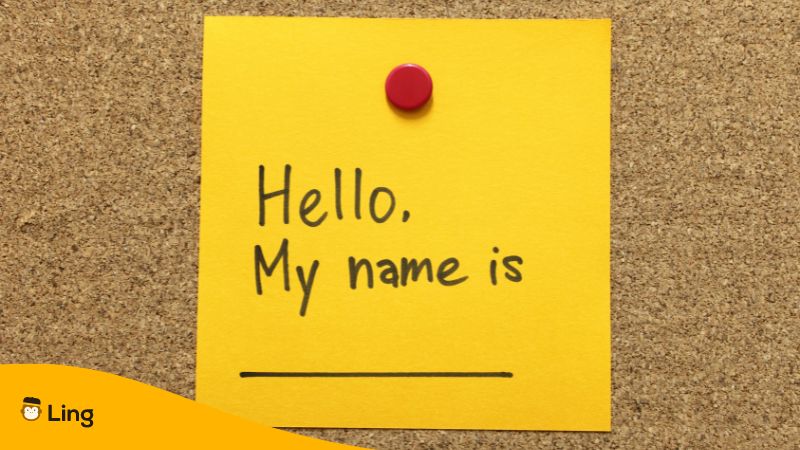Are you an ardent Chinese language student? Or are you a beginner looking for ways to learn the basic vocabulary and everyday phrases? If you fall into either of the categories, read on to get a good grasp on ways to introduce yourself in Chinese.
In this blog, we’ll learn the most basic step of communicating in a new language – the introduction. It is the first baby step that you take towards your vocabulary-building process. And I am going to make sure that it is as smooth for you a process as a baby learning to coo and gurgle – effortless! So, let’s get cracking!
Introduction: The First Block Of Language Learning
Before we commence, let us remember that like many other Asian cultures, Chinese culture also places a great deal of importance on being respectful towards seniors and elders.
So, when having a conversation with people up on the hierarchy level, be mindful of using formal language as you introduce yourself in Chinese. Though with your new Chinese friends, you can relax a bit and use an informal way of self-introduction with them.

Phrases To Introduce Yourself In Chinese
Let us take a step-by-step approach to perfect our introduction game in the Chinese language.
1. Hello – Nǐ Hǎo
Chinese: 你好
This is the basic greeting that you can use in every given situation. Simply walk up to the person and say “Nǐ hǎo,” as you sport a charming smile.
2. How Are You? – Nǐ Hǎo Ma?
Chinese: 你好吗
So, the literal translation of this phrase is, “are you okay?” However, just like in many other cultures and languages, Mandarin Chinese has its own way of asking for someone’s well-being.
3. My Name Is – Wǒ De Míngzì Shì
Chinese: 我的名字是
When telling your name, you can make the use of the phrase, “Wǒ de míngzì shì,” followed by your name. For instance, if you are an Anna, you’ll simply say, “Wǒ de míngzì shì ānnà.” Another way of telling your name is “Wǒ shì ānnà.” It is written as 我是安娜.
4. What Is Your Name? – Nǐ Jiào Shénme Míngzì?
Chinese: 你叫什么名字?
After introducing yourself, it is polite to ask the other person’s name too. To do that, you will say, “Nǐ jiào shénme míngzì?” It translates to, “May I have your name?” Super polite, you see!
5. I Am A – Wǒ Shì Yīgè
Chinese: 我是一个
Now, at this step, you’d be needed to tell your occupation or what is it that you do. Are you a student, a working professional, a homemaker, or an entrepreneur? So, to tell your answer, you will say, “Wǒ Shì Yīgè____,” followed by your job title or occupation.
For instance, if you are a student, say, “Wǒ shì yī míng xuéshēng.” (我是一名学生) And if you are a banker, you’ll say, “Wǒ shì yínháng yè gōngzuò zhě.” (我是银行业工作者)
6. It Was A Pleasure To Meet You – Hěn Gāoxìng Jiàn Dào Nǐ
Chinese: 很高兴见到你
Coming towards the end of this sequence, let’s end the conversation on a polite note. Use “Hěn gāoxìng jiàn dào nǐ,” to tell the person that it was nice to meet them.
7. See You Later – Huítóu Jiàn
Chinese: 回头见
Use “Huítóu jiàn,” to bid a quick farewell to your acquaintance. You can also say, “Zàijiàn, bǎozhòng,” (再见,保重) to say, “Goodbye, and take care.”

Other Phrases Related To Chinese Introduction
Now that we have covered the basic Chinese phrases related to self-introduction, let us take a look at some more phrases that might come in handy when talking to Chinese people.
1. Nationality: I Am – Wǒ Shì
Chinese: 我是
To say that you are an American, you will say, “Wǒ shì měiguó rén.” (我是美国人) As an Indian, you will say, “Wǒ shì yìn duó rén.” (我是印度人)
In fact, you can refer to our blog article on countries and nationalities in Chinese to learn how each nationality is pronounced in the Chinese language.
2. Age: I Am X Years Old – Wǒ Jīnnián X Suì
Chinese: 我今年 (X) 岁
You can use this phrase to tell your age. Simply replace the X with your age number.
3. Residence: I Stay In – Wǒ Liú Zài
Chinese: 我留在
To tell a Chinese person the place where you live, use “Wǒ Liú Zài,” followed by the name of the place.
4. Office: I Work At XX – Wǒ Zài XX Gōngzuò
Chinese: 我在 (XX) 工作
When talking about your company or the place where you work, say, “Wǒ Zài XX Gōngzuò,” and replace XX with the company name.
5. Learning Status: I Started Learning Chinese In XX – Wǒ Cóng XX Nián Kāishǐ Xuéxí hànyǔ
Chinese: 我从XX年开始学习汉语
This is an additional yet handy phrase. You can use it to tell the person how long you have been a student of the Chinese language. This usually bodes well with people around you as they see you making an effort to learn their language. They take it as an appreciation of their culture. So, it is a win-win situation for you!
Learn Chinese With Ling
Now that you have learned to introduce yourself in Chinese, why not learn some other related phrases to add to your vocabulary and phrasebook? Head straight to Ling’s Chinese blog to read some well-curated articles on everyday Chinese usage.
And the fun doesn’t stop there. You can download the Ling app to further your learning Chinese goals in a fun and engaging manner. Did you know that Ling’s gamified approach makes it an amazing tool for language learning, involving all aspects of language skills?
So download the app from App Store or Play Store and get on with learning Chinese now!






























































